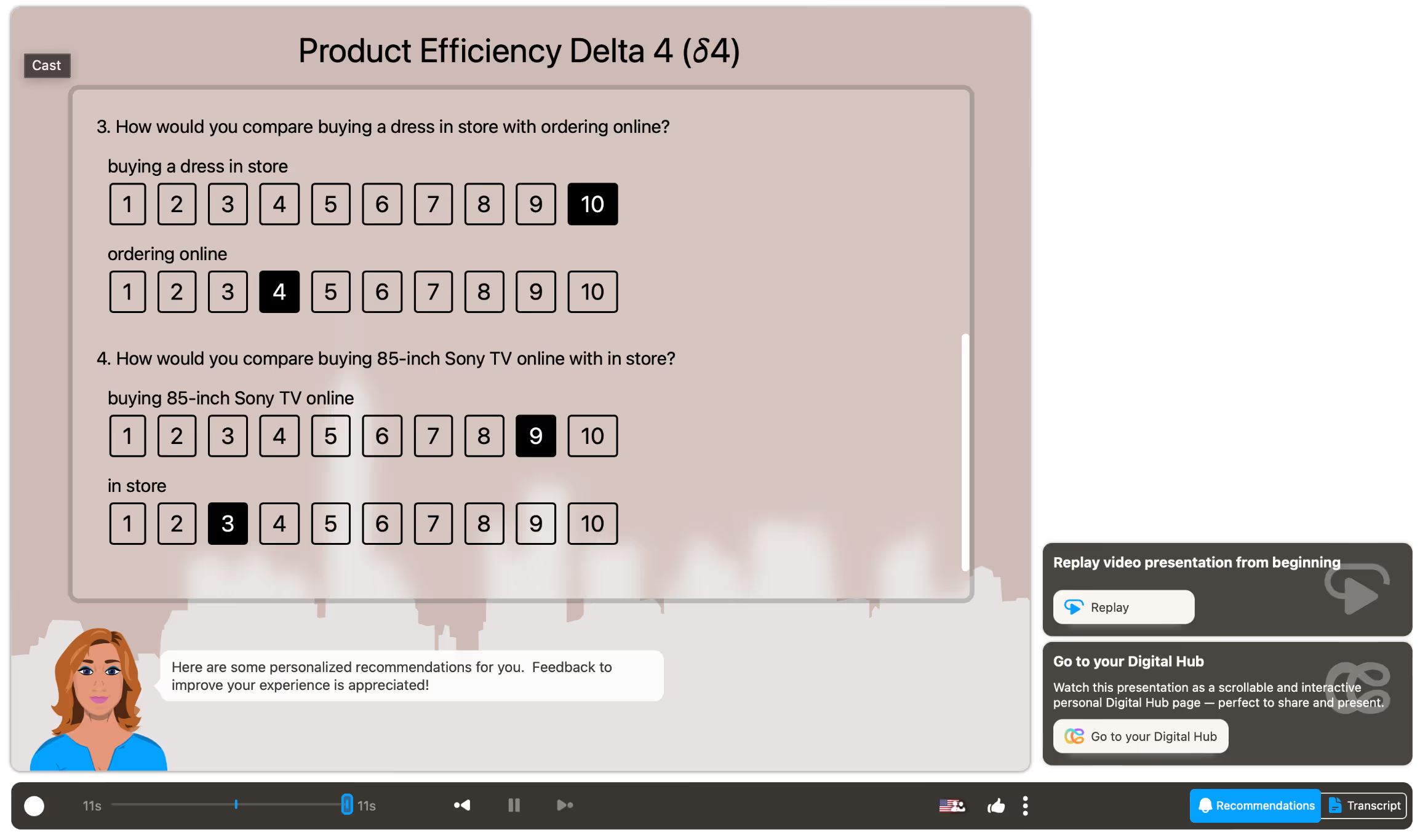In the rapidly modernizing B2B landscape, continuously enhancing customer experience (CX) is becoming increasingly crucial.
To provide a more comprehensive view of CX and drive strategic decision-making, this article explores the integration of conventional lagging metrics with newer advanced metrics
Product Efficiency Delta 4 (PE𝛿4, 𝛿4) — or more accurately Customer Experience Delta 4 (CX𝛿4) — is a new and modern measure that assesses how much a new product, feature, or service improves the customer experience (CX) compared to an alternative, like a previous version or a competing product. It has been popular amongst investors to determine, how a new experience from a startup compares with the incumbent's experience.
𝛿4 is easily applied to companies with similar mindset and helps quantify how much better the new product, feature, or service is and how significant this improvement is.
PE𝛿4, 𝛿4, or CX𝛿4 = Difference between Customer Experiences of a product, feature, or service and an alternative.
What was your experience buying the 85-inch Sony TV online versus in a store?
Online: 9
In-store: 3
𝛿4 = 9-3 = 6.
6 > 4, so the efficiency and experience of buying a large electronic item online and getting it delivered at home is higher than the experience of buying it online.
A new experience is only sometimes better than an existing experience.

For example, when comparing the experience of buying a fitted dress online versus in-store, a bride shopping at a store can try on multiple dresses, get personalized help from staff, and quickly check the quality, texture, fit, and color of the dress. The store may also offers a luxurious ambiance and excellent customer service. In contrast, buying a fitted dress online means relying on size charts and images, which can lead to fitting issues and the hassle of returns.
Product Efficiency Delta 4 quantifies this concept. An improvement score of four or more will significantly change consumer behavior.
What was the experience of buying your fitted dress online versus in a store?
Online: 3
In-store: 10
𝛿4 = 3-10 = -7.
The efficiency and experience of buying a fitted dress online is lower than the experience of buying it in-store.
Delta 4 is determined by asking two specific questions about the customer experience with the new product compared to an alternative:
Both questions are answered using the same Likert scale, either:
The difference between the scores of these two questions gives us the Delta 4 score.
According to the Delta-4 Theory by Kunal Shah, a Delta 4 score of 4 or higher indicates a significant improvement in efficiency. Such a score makes the new product:
This high level of improvement increases customer loyalty and preference for the new product.
Back to the dress example, you can change customer behavior when the online experience is 4 points better than that of buying at a store.
Key Takeaways:
